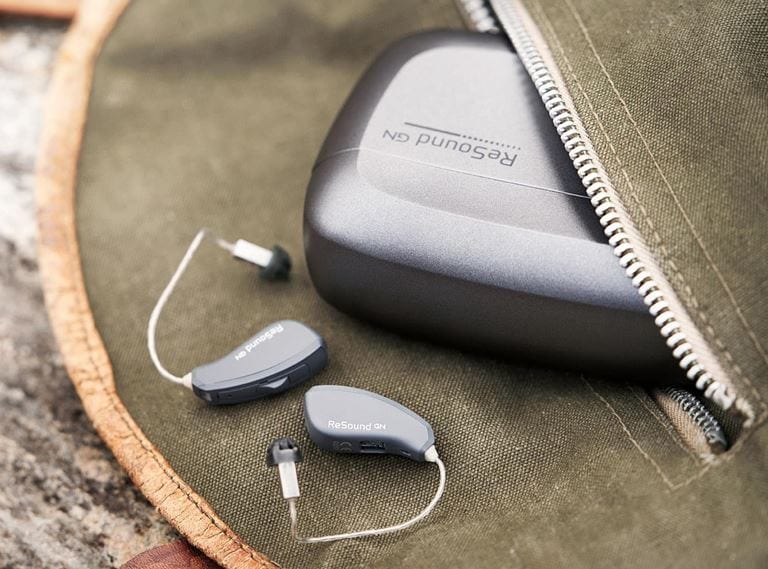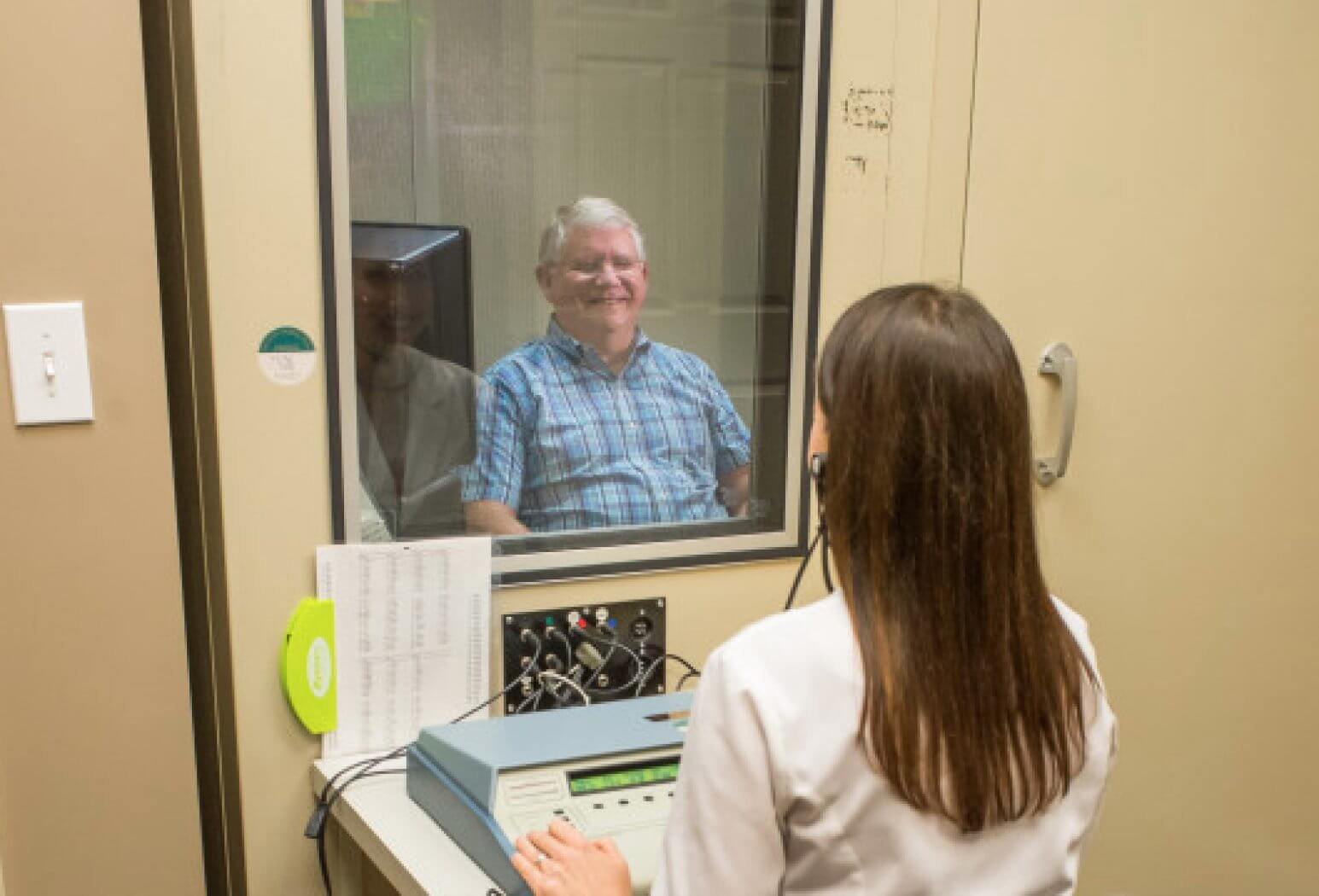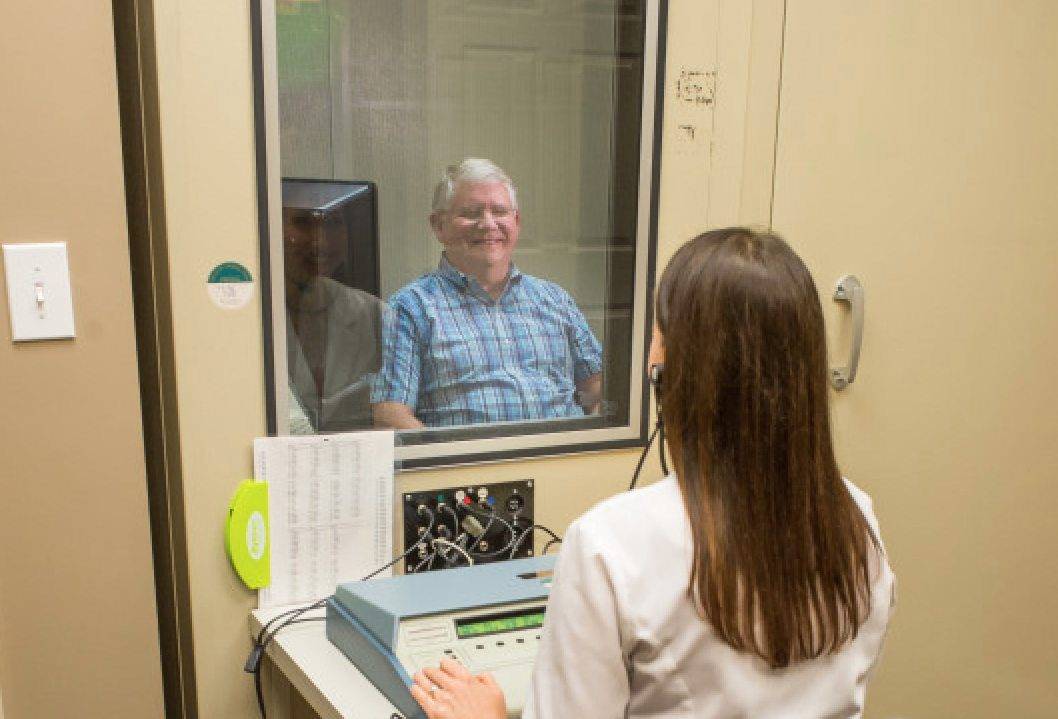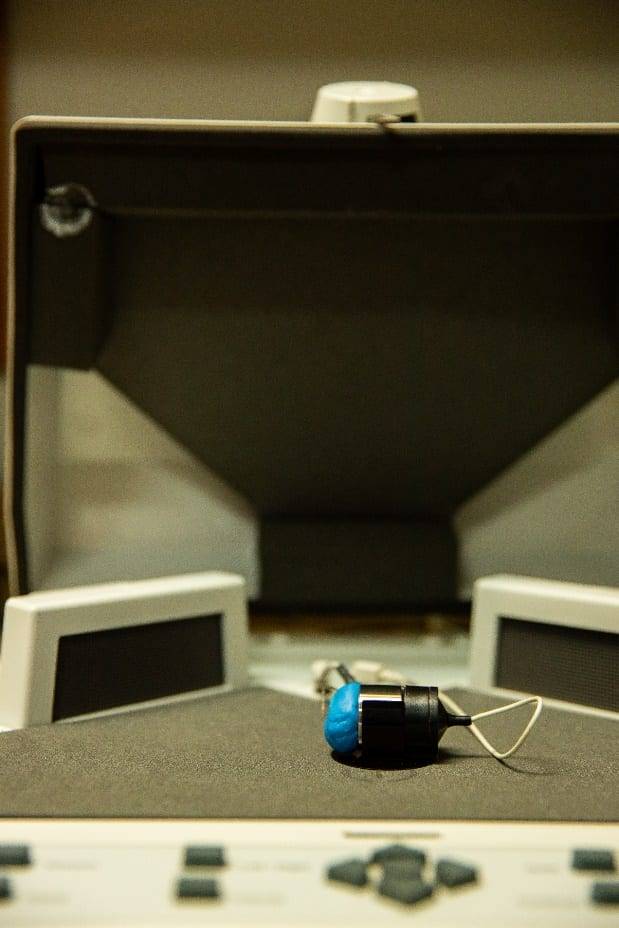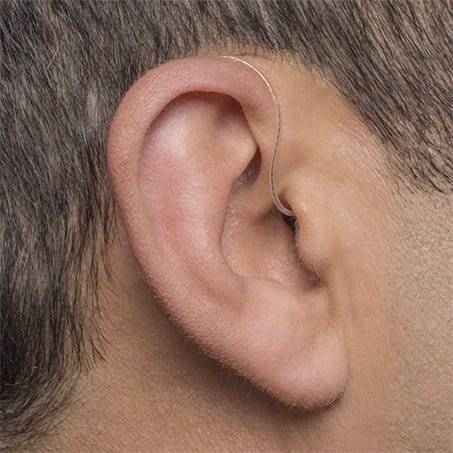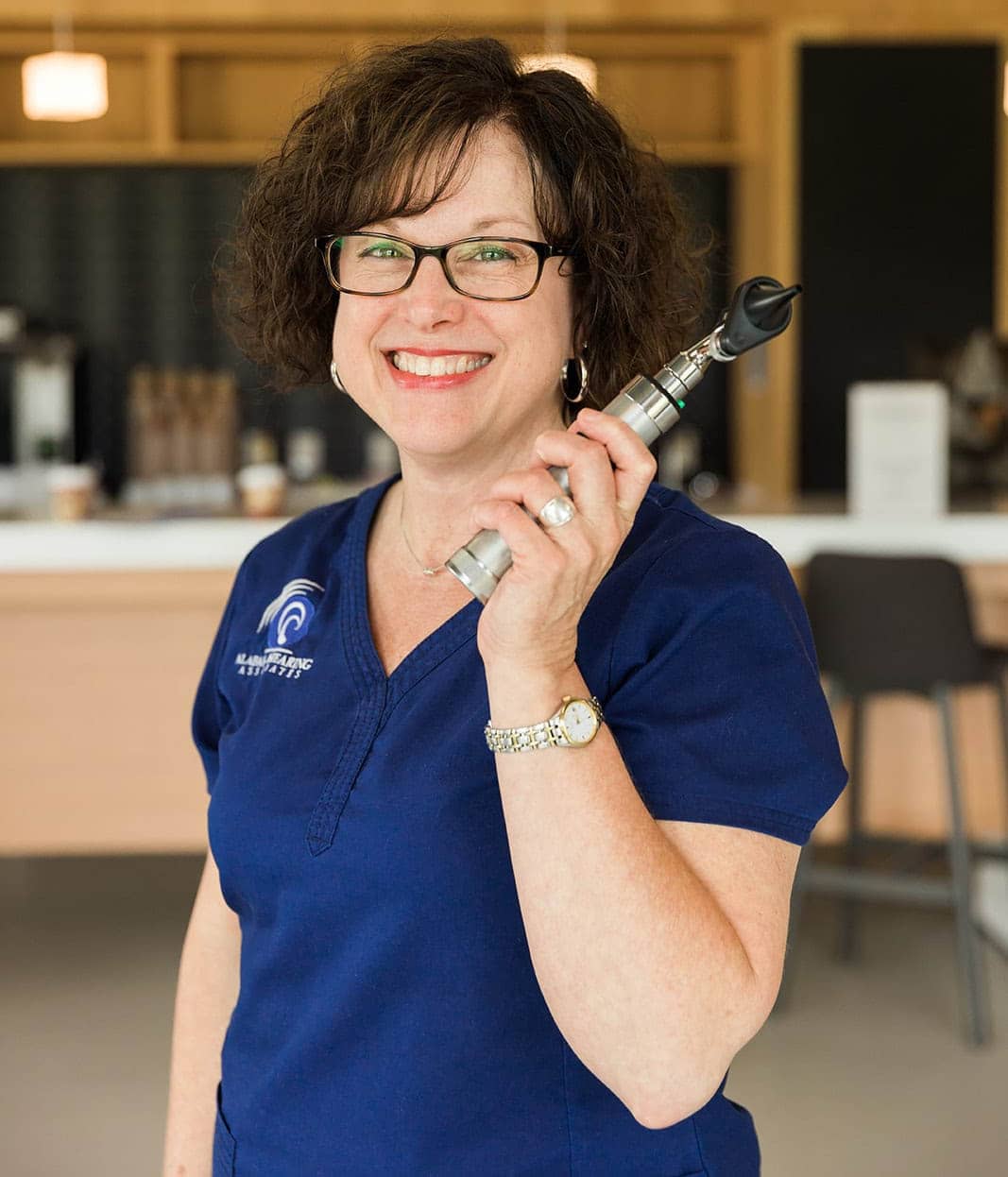All hearing aids come in various shapes, sizes, and colors. What they look like has nothing to do with how they sound, their intended user, or their cost. Some companies like GN ReSound and Starkey manufacture and distribute both OTC and prescription devices.
The main difference between OTC and prescription hearing aids is that OTC hearing aids can be self-fit. Much like OTC reading glasses found at a pharmacy, you choose the style, make sure it fits properly, and make your own adjustments to the sound, sometimes using an app on your smart phone. Remember that OTC hearing aids are only intended for adults with mild to moderate self-perceived hearing loss.
Prescription hearing aids can only be purchased from a licensed professional, such as an audiologist or hearing instrument specialist. Prescription devices are intended for all ages and all degrees of hearing loss, mild to profound.
There is a scientific formula needed for prescription medication, which considers the physical characteristics of the patient (age, weight, etc.) and the known disease being treated.
To fit prescription hearing aids, the audiologist uses the hearing test and other critical information such as outer ear size/condition, cognitive wellness, and speech-in-noise ability to fit and program the hearing aids.
At Alabama Hearing Associates, our audiologists also use real ear measurement and other established “best practices” to ensure properly fit hearing aids for all our patients.
How do I know if I need “prescription” or “over-the-counter” devices?
The short answer to this question is that you don’t even know for sure you have a hearing loss without a hearing evaluation.
In 2022, the ability to manage your own healthcare is greater than ever before. “Dr. Google” is at your fingertips and online hearing tests promise an accurate diagnosis in minutes. The availability of OTC hearing aids allows consumers to decide for themselves how much hearing loss they have and the ability to choose their own treatment.
If the following things are true, then OTC hearing aids might be an option for you:
- Adult over the age of 18
- Perceived mild hearing loss
- NO other symptoms such as tinnitus (ringing in the ears), dizziness, imbalance, falls, ear pain, ear drainage, sudden hearing change, diabetes, memory concerns, stroke, or cardiovascular disease.
If you have questions or would like to schedule a hearing evaluation, please call 256-319-4327, and one of our friendly team members will call you back shortly. Stay tuned for the next OTC article on the pitfalls of self-diagnosis.


